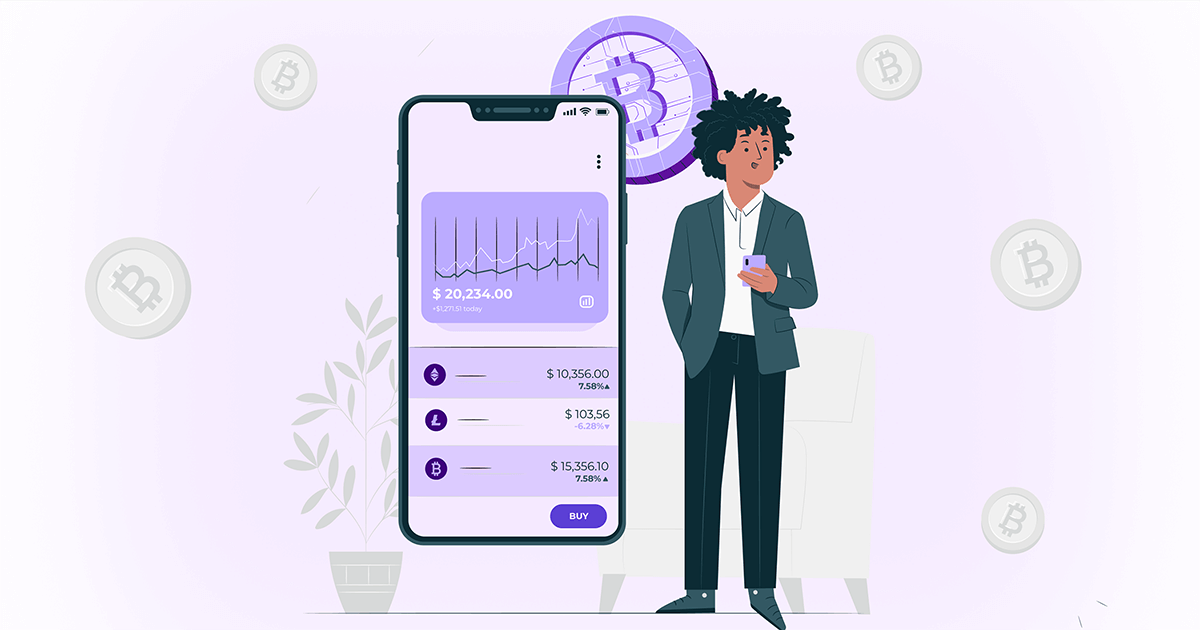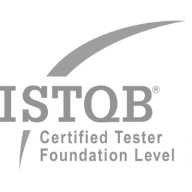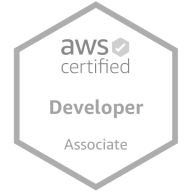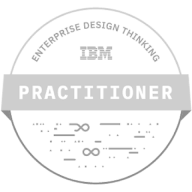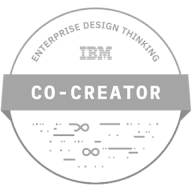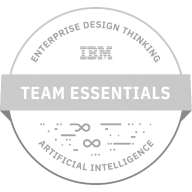
Want to know more? — Subscribe
Trends in fintech industry continue evolving at a breakneck pace. In the last decade, we've seen digital-only banks, automated wealth management platforms, and cryptocurrencies challenging the foundations of traditional finance. If the past decade's trends are any indicator, 2024 promises even more disruption to financial services.
Leveraging the experience of creating ExtoBit, Softermii discussed 12 hot fintech industry trends for your business:
- AI and machine learning
- Robotic process automation
- Chatbots
- Microservices
- Embedded finance and much more.
Moreover, we also share our recommendations on how to harness these latest trends in fintech for creating a successful app.
For businesses and consumers, 2024 may prove the most transformative year for fintech yet. Now time to waste, let's explore what's next for the banking industry.
Why Fintech Apps Are on the Rise
Simply put, fintech apps are in demand because they substantially benefit users and financial institutions.
Fintech is changing our relationship with banks and traditional financial institutions, lowering barriers to entry, and changing attitudes. By covering the underserved areas of banking, the technology allows the development of previously unprofitable areas, including retail banking and low-margin business models. In return, greater inclusiveness increases the trust level of customers. And, all this happens with the thought of bringing customers top user experience, fueling the development of future fintech trends.
Top 12 Tech Trends in Fintech Industry for 2024
The fintech industry has grown rapidly in the past few years, and it is expected to continue expanding at a rapid pace. We highlight some of these new technologies and explain how they are likely to change the face of banking in the coming decade.
Artificial Intelligence and Machine Learning
AI and ML algorithms make accurate predictions based on historical data patterns. Thus, companies can offer products tailored to the needs and preferences of customers.
These technologies foresee risks with high accuracy using data analytics in fintech. They can help in credit scoring, fraud detection, and investment risk assessments. They may also automate regulatory compliance, ensuring adherence to financial regulations.
Generative AI in FinTech
Generative AI models can create content or data based on the training they've received. It can simulate market scenarios, aiding in developing new products or strategies. The generated simulations can also help with testing fraud detection mechanisms.
Generative AI in banking can also mimic market conditions. This way, businesses can prepare for various scenarios, making more informed investment decisions.
In 2024, generative AI pushes the boundaries of traditional financial services. It encourages creativity and innovation in product design and service delivery.
Robotic Process Automation (RPA)
RPA, or Robotic Process Automation, is a fintech technology trend gaining traction across all industries. Given its helpful ability to hyper automate the existing processes, we expect RPA tech trends to continue being on a positive trajectory over the next few years, with the adoption of robots and machine learning technologies increasing.
By harnessing powerful process automation tools, organizations can design and deploy intelligent bots that can interact with software interfaces and applications – making decisions about what to do when specific triggers occur.
Chatbots
Computer programs that simulate conversation with a human user via text, voice, or video are used on messaging platforms across different industries, including customer service, hospitality, social media marketing, and sales. Commonly, it works as an automated customer service agent that answers simple queries via instant messenger (IM).
For fintech, chatbots are useful for increasing trust and serving international customers more effectively. Mainly, they work as informational, transactional, or advisory assistance for users. For example, clients can check their balance and request a new insurance package more effectively and cheaper.
Blockchain
Blockchain technology is an extremely versatile invention, and its potential uses span several industries, with the financial sector already adopting multiple applications. In particular, financial institutions use blockchain to reduce risks and increase security, while other businesses explore blockchain to cut costs and improve efficiencies. In 2024, the technology is expected to move towards greater security and applicability of its smart contracts.
Microservices
Microservices is another way to achieve greater security in fintech during 2024. Also, they possess great value for money to gain more popularity next year.
Also labeled as small form factor (SFF) server architecture, microservers are efficient, dense, and powerful. Each microserver is designed to reduce the size, power usage, and capital expenses, and together, microservers can host small-scale applications and data that don't need full services from conventional large enterprise hardware.
Voice Commands
Voice recognition technology is the trend that is expected to achieve greater popularity in 2024. However, its further development is currently questioned. Even with the Statista prediction the voice command units will reach 150 million by 2026 in the US, there are still many people who still don't trust voice commands yet. Therefore, the ability to adapt the technology widely depends on its security standards.
Mobile Banking
Cases like Revolut have shown that mobile banking may change how we interact with banks to the core. After experiencing the convenience of using mobile wallets to make purchases, users want financial institutions to bring even more convenience to them — and shift all their services into an app.
Among mobile banking tech trends, facial recognition and ensuring a sufficient safety level. Users can process their loans with a couple of clicks instead of spending lots of time waiting and handling bureaucratic requirements.
Autonomous Finance
Autonomous finance, or "self-serving money," is an AI-empowered innovation that lets you design and execute an app's financial plan. All users need to input their personal goals and balances, and the digital assistant will help them start investing, make savings, and forward funds to charity. Thanks to these features, autonomous finance is about to revolutionize the sphere of personal finance.
Embedded Finance
Embedded finance is the integration of financial processes and tools into non-financial systems. Its rise has also led to a surge in partnerships between traditional banks, fintech, and non-financial companies.
- It can offer services within the customer's usual touchpoints and isn't confined to traditional institutions. A health app, for example, can offer insurance products, while an e-commerce platform can provide financing options.
- These solutions often come with built-in compliance tools. Thus, they ensure that even non-financial companies can offer financial services safely.
- Embedded finance opens the door to innovative business models. For example:
- subscription-based services;
- pay-per-use models;
- microtransactions.
- Embedded finance may increase financial inclusion by integrating financial services into everyday apps. It brings financial services to populations who lack access to traditional banking.
Regulatory Technology (RegTech)
RegTech offers innovative tools and systems designed to simplify and strengthen regulatory processes. It offers secure data handling, encryption, consent management, and risk assessment solutions. They further safeguard customer data against breaches and unauthorized access.
Know Your Customer (KYC) processes are critical in the financial industry. RegTech automates identity verification, background checks, and due diligence. This process speeds up customer onboarding, enhancing the accuracy of KYC procedures.
Regulatory technology also involves active collaboration between fintech companies and regulatory bodies. It helps develop effective solutions that are beneficial for the industry and consumers.
Buy Now, Pay Later
The BNPL model allows individuals to make purchases and defer payments into smaller installments, often without interest. Unlike traditional bank systems, these providers often use alternative methods to assess creditworthiness. They are often less stringent and quicker, and even users with limited credit history may get access to credit.
For instance, e-commerce sites incorporate BNPL at checkout, providing a seamless transaction process. This way, consumers get more payment options, while merchants can increase sales and improve customer satisfaction.
BNPL's flexible repayment plans also cater to varying income levels and budgeting styles. Thus, the solution can encourage larger purchases that might have been unaffordable in a lump sum.
Yet, it highlights the importance of responsible spending and the need for consumers to understand the terms of their BNPL agreements. Businesses must ensure transparent terms, fair lending practices, and adequate consumer protection. It's crucial to balance innovation in consumer credit with the need to protect users from potential over-indebtedness.
Open Banking
Its concept revolves around using open APIs, enabling third-party providers (TPPs) to build services around financial institutions. Open banking lets consumers control their information, allowing them to share it securely with TPPs. When getting access to this data, companies can develop new apps and services tailored to individual user needs:
- budgeting tools;
- financial dashboards;
- personalized investment advice, and more.
This development can reach underserved markets, such as individuals with thin credit files or those who are unbanked.
Open banking streamlines processes like loan approvals and payments. Lenders can quickly access a customer's financial history, leading to more informed lending decisions. Similarly, payment initiation services enable direct and efficient transactions. It reduces the reliance on traditional payment methods.
How to Develop a Fintech App Considering Latest Trends
If you are planning to develop a fintech app, it's important to stick to the app development process and invest in the solution's innovativeness, safety, and effectiveness. Along with fintech technology market analysis, proper attention to the tech side during execution will let you streamline certain processes, leverage business opportunities as they arise, and innovate rapidly.
In this section, you'll find the top 3 recommendations that will help your software stand out in the market and meet the latest requirements for functionality and safety.
Define the Key Feature
We recommend picking the killer feature that your app will do better than all the others so that you will attract your future customers to this particular service. Once this function is picked, stick to it from the beginning of the development process and remain consistent until the end.
Pick the Right Vendor
It's important to find a true tech partner for your fintech app development or a team capable of ideating and executing your project on their own. To find the right one, we recommend paying attention to the portfolio of your future software provider, the level of expertise in your sphere, and the ability to answer some business-critical questions from the very beginning, like the approximate cost of a future fintech app. We recommend going for outsourcing, as this decision will let you save your budget on developing sophisticated features instead of spending money on expensive hourly rates of software engineers.
Build an MVP First
MVP development is one of the best strategies for businesses, and fintech app development is not an exception to this rule. Given the high complexity of fintech apps, seeing some core problems in MVP will help you create a high-quality product that works smoothly even when you add all the extra features planned.
Latest Tech Stack for Fintech Mobile App Development
Being a combination of tools, frameworks, and programming languages, the tech stack is the basic knowledge needed to develop a mobile app. The tech stack includes the front-end and back-end for fintech mobile app development. Generally, building an app requires knowing the most popular programming languages.
Web Apps
For web apps, they are HTML, CSS toolkit, and Javascript for front-end and Java, Python, Materialize, PHP, JavaScript, and Dart for back-end. The latest tech stack includes LAMP stack, Python-Django, and MEAN stack for developing more complex features.
Mobile Apps
When it comes to mobile app development, the tech stack differs based on the app type. For Android, the programming languages include Java and Kotlin, while iOS apps are written in Objective-C and Swift mostly. The programming tools are Android Studio & Android Developers Tool (for Android) or XCode (for iOS).
For cross-platform mobile development, programming tools include React Native, Xamarin, Flutter, or combinations of React Native and JavaScript (or TypeScript) or Xamarin and C#.
Hybrid fintech apps use PhoneGap/Cordova or Ionic.
Softermii Experience in Fintech App Development: ExtoBit
For ExtoBit, a cryptocurrency exchanger, we've taken responsibility for the entire technical side, marketing, and UI/UX decision-making during the project.
ExtoBit allows making hyper-quick transactions that are very convenient for users. What's more, the exchanger has lucrative exchange rate pricing deals for their long-term members and special offerings for their affiliates. At the same time, the business came to us for assistance in making its fintech solution stand out among numerous cryptocurrency projects.
For the project, we've concentrated on safety and marketing. These days, cryptocurrency still operates at a high level of uncertainty, and providing the safety of money transfers is a real challenge. As for the marketing, we needed to select the list of selling points to help the client stand out in the sharp competition.
The technical solution Softermii was built on C# with the back-end divided into isolated applications that strengthen the overall security. The back-end applications used ASP.NET Core framework, MS SQL Server is the database engine, and front-end programming was executed with Vanilla JS and React.
We've introduced and clearly communicated six levels of membership users can choose from in terms of marketing. As a result, ExtoBit has opened with a consistent number of early adopters and still keeps expanding its user base.
Conclusion
Remote work and online banking drive demand for fintech innovations focusing on security, convenience, and personalized services. Meeting these needs will separate the fintech leaders from the rest.
With Softermii, your business can proactively embrace top fintech trends for a competitive edge. Our seasoned developers specialize in building fully modernized solutions, offering expertise in:
- Cryptocurrency and blockchain to facilitate financial transactions
- Automated smart contracts and advisory services
- Enhanced data security and regulatory compliance
- Banking and insurance offered through third-party platforms
- Financial inclusion of underserved demographics
- Ongoing post-launch monitoring and optimization
Softermii is committed to building the financial world of tomorrow. We can assess your needs and craft a solution ready to deliver ROI and longevity.
Get in touch today to explore how we can partner to make 2024 your most revolutionary growth year yet. Remember, the future of fintech is now.
Frequently Asked Questions
Does your team only provide fintech app development or participate in business research and analysis?
In mobile app development for fintech, our mission is to code and rethink the whole user's journey within the solution and create a fresh visual appearance that would breathe new life into the product. So, our business analytics and design team steps up first, only to connect developers to creating highly functional fintech solutions.
What are the main challenges during the fintech app development process?
One of the critical challenges in developing any fintech solution is to keep abreast of all the recent innovations on the market, providing a highly functional, seamless, and user-friendly solution for every demographic.
What was the main business outcome after finishing a real estate mobile app development project?
The main goal of any fintech app is to solve user's problems by introducing a seamlessly working A to Z process for both – businesses and users. To develop a successful fintech app, working with experts who already have experience integrating complicated systems into a mobile app is critical.
What is the fintech app technology stack?
Web Apps
For web apps, they are HTML, CSS toolkit, and Javascript for front-end and Java, Python, Materialize, PHP, JavaScript, and Dart for back-end. The latest tech stack includes LAMP stack, Python-Django, and MEAN stack for developing more complex features.
Mobile Apps
For Android, the programming languages include Java and Kotlin, while iOS apps are written on Objective-C or Swift. The programming tools are Android Studio & Android Developers Tool (for Android) or XCode (for iOS).
For cross-platform mobile development, programming tools include React Native, Xamarin, Flutter, or combinations of React Native and JavaScript (or TypeScript) or Xamarin and C#. Hybrid fintech apps use PhoneGap/Cordova or Ionic.
How about to rate this article?
211 ratings • Avg 4.6 / 5
Written by:









